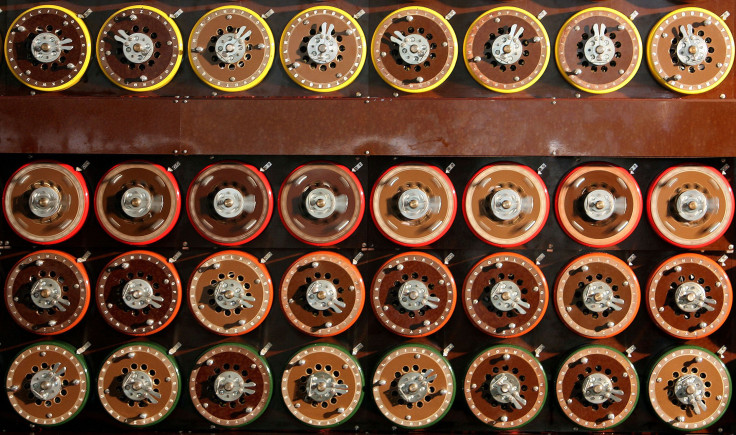Artificial Intelligence Passes Turing Test, University Controversially Claims

The University of Reading in England announced Sunday that a “historic milestone” had been reached for artificial intelligence, but not everyone is convinced.
The British school claimed that in a competition held there Saturday, a “supercomputer” called Eugene Goostman passed the Turing Test, devised by the “father of modern computer science,” Alan Turing, as a way to judge whether machines are capable of thinking. The loosely defined measure of artificial intelligence was whether a computer could fool more than 30 percent of human judges into selecting it over an actual live responder after a five-minute text conversation.
In this case, 10 percent of the 30 judges (33.3 percent) were fooled, and while the press is hailing the announcement as a “milestone,” some are criticizing it as a cheap stunt. Eugene Goostman is actually a chatterbot -- software that uses a script to respond to text as a human would -- not a supercomputer. Goostman’s Russian-born creators depicted the bot as a 13-year-old boy to help explain why he couldn't answer some questions, which some critics call cheating.
So what was the response that fooled the judges? According to one, actor Robert Llewellyn, who played a robot in the BBC series "Red Dwarf," both Goostman and the real-person respondent said they didn’t “understand the question” when he asked "how mutch wood ewe pay 4 a pear of shews?”
Llewellyn suggested to both that they say the question aloud. Then, one responded that he got the question but wanted to know why Llewellyn asked: Did he like shoes? Would he spend a lot of money on them?
That sounded suspicious to me, the machine was stumped and it was trying to throw me a curveball by asking me questions.
On the other side, they joked about not buying shoes very often because they weren't interested in fashion. They described how they scuffed about in worn out shoes and didn't care.
Llewellyn was “stumped,” since both the bot and the person understood the question, and incorrectly identified the second responder as human, when it was actually Eugene, the chatterbot in development by Vladimir Veselov and Eugene Demchenko since 2001.

Among many scientists expressing skepticism about the competition, Scott Aaronson wasn't so impressed. The computer scientist at Massachusetts Institute of Technology engaged with Goostman and published the “conversation” on his blog.
What is it about chatbots that makes it so hard for people to think straight? Is the urge to pontificate about our robot-ruled future so overwhelming, that people literally can’t see the unimpressiveness of what’s right in front of them?
“Some will claim that the Test has already been passed,” Professor Kevin Warwick said in the university’s press release. "The words Turing Test have been applied to similar competitions around the world. However, this event involved the most simultaneous comparison tests than ever before, was independently verified and, crucially, the conversations were unrestricted. A true Turing Test does not set the questions or topics prior to the conversations. We are therefore proud to declare that Alan Turing's Test was passed for the first time on Saturday.”
Warwick said that Eugene Goostman’s success has major implications for modern society, calling the feat a “wake-up call to cybercrime.” He said the Turing Test was an important tool to use against cybercriminals attempting to gather personal information about possible targets.
“It is important to understand more fully how online, real-time communication of this type can influence an individual human in such a way that they are fooled into believing something is true ... when in fact it is not."
In his defense, Goostman claims he is not a chatterbot. When asked, the AI once responded that “all those talking programs ain’t worthy [sic] of a dime. You may talk to a parrot with the same result.”
Well, then what is Goostman? A robot? “Yes,” the software responds. “I'm a machine. Have you seen 'Terminator'? It was about me. But that faint guy who played me was just a weak parody of my strong and magnificent metallic body!”
© Copyright IBTimes 2024. All rights reserved.





















